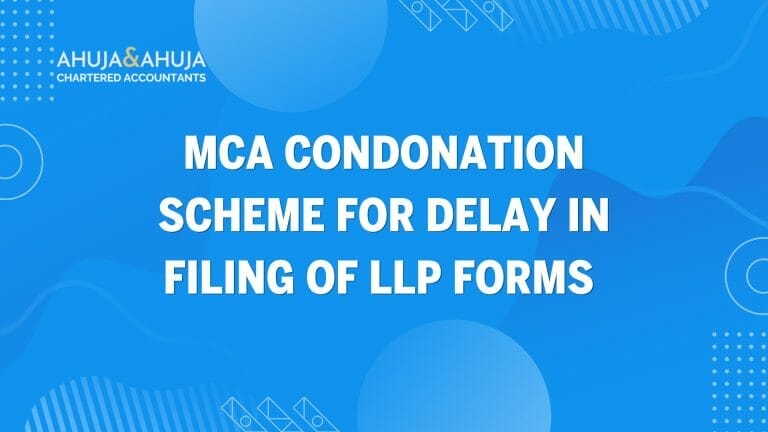Section 185 of Companies Act: Understanding Loans to Directors and Related Provisions
The Companies Act, 2013, which replaced the Companies Act of 1956, introduced significant reforms to improve transparency, enhance the accountability of companies, and boost the business environment in India.
This act is a cornerstone in the landscape of Indian corporate law, laying down regulations that govern the incorporation, functioning, and dissolution of companies across the country.
The Significance of Section 185
Within this framework, Section 185 holds a vital place, aimed at preventing conflicts of interest and ensuring that directors do not misuse their positions for personal gain.
This section specifically deals with the restrictions on loans, guarantees, and securities given to directors and entities connected to them, thereby upholding the principles of corporate governance and fiduciary responsibility.
Purpose of Section 185
The primary intent behind Section 185 is clear – to safeguard the company’s assets from being misused by those in control.
By regulating transactions between the company and its directors (or their associates), the Act ensures that the management’s decisions are made with the company’s best interests in mind, without any undue influence owing to personal financial interests.
This provision curtails any inclination toward self-serving practices that might compromise the ethical lines of conduct expected from those at the helm of corporate leadership.
Not adhering to these guidelines can lead not only to financial mismanagement but also to a loss of shareholder trust, which is crucial for corporate entities.
Exploring the Provisions of Section 185(1)
Section 185(1) is explicit in its mandate: no company shall, directly or indirectly, advance any loan, including any book debt, or offer any guarantee or provide any security in connection with any loan taken by specific individuals and firms. These entities primarily include:
- Directors of the company or their relatives,
- Partners of the directors or their relatives,
- Firms in which such directors or their relatives are partners,
- Directors or their relatives of a holding company.
This prohibition spans across all types of companies, whether private, public, or one-person entities, reflecting the universal applicability of this governance standard.
Common Misunderstandings and Compliance Tips
While the directive might seem straightforward, misunderstanding its scope can lead to unintended breaches.
For instance, many might not recognize that a loan facilitated by a director’s relative falls under this section.
It’s important for companies to ensure thorough internal checks and balances are in place to monitor compliance.
Key compliance tips include:
- Establishing robust systems for tracking and approving financial transactions involving directors and their associates.
- Regular training sessions for new and existing board members about the nuances of the Companies Act, particularly Section 185.
Detailed Explanation of Provisions: Section 185(1) – Direct Restrictions
Who Are the Restricted Parties?
The Companies Act, 2013 is very specific about the parties to whom companies cannot extend loans, guarantees, or any form of securities.
These restrictions apply primarily to:
- Directors of the Company: Loans or financial assistance cannot be provided to any director of the company, which ensures that resources are used only for legitimate business purposes and not for personal benefits.
- Relatives of Directors: The Act extends the prohibition to the relatives of the directors, broadening the scope to prevent indirect benefits that might be transferred within close networks.
- Partners of Directors: If a director has a partnership in any firm, that firm is also barred from receiving any financial aid from the company.
- Director of a Holding Company: This includes any director of the company’s holding company, reflecting the legislation’s focus on maintaining transparency in financial dealings at all levels.
Types of Financial Aid Restricted:
Section 185(1) specifically mentions the following types of financial aids that are restricted:
- Loans: This includes all types of monetary loans, regardless of their nature or purpose, ensuring that company funds are safeguarded against potential misuse.
- Guarantees: Guarantees provided by the company for any loans taken out by the restricted individuals or entities are prohibited.
- Securities: Any security provided in connection with any loan taken by these parties is also covered under this prohibition.
Table of Prohibited Relationships and Transactions
| Relationship | Transaction Type | Detail |
|---|---|---|
| Director of the Company | Loans, Guarantees, Securities | Direct prohibition on all financial aids |
| Relative of Director | Loans, Guarantees, Securities | Extends to family members and close associates |
| Partner of Director | Loans, Guarantees, Securities | Includes firms where directors are partners |
| Director of Holding Company | Loans, Guarantees, Securities | Applies to directors at the holding company level |
Common Pitfalls and How to Avoid Them
Documentation and Record Keeping: Ensuring all transactions and their related documentation are thoroughly recorded and easy to audit. This transparency helps in proving compliance.
Regular Compliance Audits: Regular audits specifically focused on transactions involving directors and related parties can help in early detection of any potential non-compliance.
Clear Internal Policies: Establish internal guidelines that clearly demarcate the boundaries as laid out by Section 185. Make sure these policies are well communicated to all stakeholders.
By understanding these restrictions and implementing robust controls, companies can avoid the severe consequences of non-compliance, including heavy penalties.
Exploring Conditional Allowances: Section 185(2)
Advancing Loans, Guarantees, and Securities Under Specific Conditions
While Section 185(1) sets strict boundaries regarding loans, guarantees, and securities extended to directors or related parties, Section 185(2) provides a framework under which these financial aids can be legally extended, albeit under strict conditions.
Understanding these exceptions is crucial for companies to manage their financial dealings without breaching legal boundaries.
Conditions for Allowed Financial Aid:
Special Resolution Requirement:
For a company to extend any financial support to the entities listed below, it must first pass a special resolution in a general meeting. This ensures transparency and approval from the majority of shareholders, reflecting communal consent for such actions.
Use for Principal Business Activities:
Any loan, guarantee, or security provided must only be used for the borrowing company’s principal business activities. This clause is essential to ensure that the extended financial aid serves legitimate business purposes and not personal interests.
Entities Eligible Under Conditional Allowances:
- Any Private Company: Where the director of the lending company is also a director or member.
- Any Body Corporate: Where at least 25% of total voting power may be exercised or controlled by the director(s) of the lending company or by two or more such directors together.
- Entities Directed by the Board or Directors of the Lending Company: If the board of directors, managing director, or manager acts according to directions or instructions of the board or directors of the lending company.
Conditions for Compliance:
Detailed Disclosure in Meeting Notice:
The notice for the general meeting wherein the special resolution is proposed should include an explanatory statement detailing the full particulars of the loans, guarantees, or securities, along with the purpose for which these will be utilized by the recipient. This requirement ensures that shareholders have all necessary information to make informed decisions.
Rigorous Record-keeping and Reporting:
Maintaining detailed records of such transactions and reporting them in compliance with regulatory requirements ensures transparency and accountability.
By carefully adhering to the conditions outlined above and providing comprehensive disclosures, companies can extend financial aid under Section 185(2) in a legally compliant manner, enhancing business flexibility while adhering to ethical standards.
Understanding Exemptions: Section 185(3)
Exceptions to the Rule
Section 185(3) of the Companies Act, 2013 provides specific exemptions wherein the restrictions imposed under Section 185(1) and the conditions of Section 185(2) may not apply.
These exceptions allow for greater flexibility under certain pre-defined circumstances, ensuring businesses can function efficiently without compromising on governance standards.
Key Exemptions Under Section 185(3):
Loans to Managing Directors or Whole-Time Directors:
This exception is applicable if the loans are given as part of the conditions of their service extended by the company or pursuant to any scheme approved by members by passing a special resolution.
Loans to Companies in Ordinary Course of Business:
Companies whose primary business involves providing loans or guarantees to other businesses can extend such financial aids provided they charge an interest rate not less than the bank rate published by Reserve Bank of India.
Loans, Guarantees, and Securities between Holding and Subsidiary Companies:
A holding company is permitted to extend loans, guarantees, and securities to its wholly-owned subsidiary, and guarantees or securities in respect of a loan taken by any subsidiary company if the funds are used for the subsidiary’s principal business activities.
Practical Implications of Exemptions:
Flexibility in Inter-company Financial Assistance:
The exemption for holding and wholly-owned subsidiary companies facilitates financial support and aids in seamless operational funding across the corporate group.
Support for Executive Directors:
Allowing companies to provide financial assistance to their managing or whole-time directors as part of their remuneration package recognizes the necessary funding that may be required for personal reasons, such as housing loans, which are common in executive compensation packages.
Compliance Checklist for Utilizing Exemptions:
Approval Processes:
Ensure that any loans or benefits granted under the exemptions are approved through the specified processes, such as board approvals or special resolutions at general meetings.
Documentation and Disclosure:
Keep comprehensive records and make necessary disclosures as per regulatory standards to ensure transparency and adherence to legal requirements.
By understanding and correctly applying these exemptions, companies can navigate through the potential complexities of financial governance while adhering to the letter and spirit of Section 185.
Proper application of these exemptions not merely ensures compliance but also fosters trust and integrity in the financial transactions of the company.
Penalties and Consequences: Section 185(4)
Addressing Non-Compliance
Section 185(4) of the Companies Act, 2013, details the punitive measures for the contravention of any of the provisions of Section 185.
Understanding these penalties is crucial as it highlights the seriousness with which the law treats the misuse of corporate assets and conflicts of interest.
Penalties Outlined Under Section 185(4):
For the Company:
Fine Range: The company faces a fine not less than five lakh rupees and which may extend to twenty-five lakh rupees. This substantial financial penalty underscores the need for strict adherence to the provisions of Section 185.
For Officers in Default:
Imprisonment and Fine: Any officer of the company who is in default could face imprisonment for a term which may extend to six months or with fine which shall not be less than five lakh rupees but which may extend to twenty-five lakh rupees, or with both. This includes directors, managers, secretaries, and other officers part of the decision-making process.
For the Borrower:
Imprisonment and Fine: The person who has taken the loan, or for whom the guarantee or security has been provided, may also face imprisonment for a term which may extend to six months or with fine not less than five lakh rupees but which may extend to twenty-five lakh rupees, or with both. This ensures that the recipients of illegal financial aids are also held accountable.
Practical Steps to Avoid Penalties:
Regular Legal Training: Conducting regular training sessions for directors and executives on the nuances of the Companies Act, especially Section 185, can significantly mitigate the risk of non-compliance.
Robust Internal Controls: Implementing strong internal controls and audit processes to monitor and review transactions related to loans, guarantees, and securities can prevent unintentional breaches of the Act.
Legal Consultations: Regular consultations with legal experts or corporate attorneys can provide updated interpretations and modifications to the law, ensuring the company remains compliant with current legal standards.
Understanding these penalties helps reinforce the importance of compliance with Section 185. Businesses should integrate these legal requirements into their corporate governance frameworks to ensure sustainable operations without legal pitfalls.
Conclusion: Upholding Corporate Integrity
Section 185 of the Companies Act, 2013 plays a pivotal role in maintaining the financial discipline and integrity of companies in India.
By restricting loans, guarantees, and securities to directors and related parties, the Act seeks to prevent conflicts of interest and ensure that directors fulfill their fiduciary duties without bias.
The detailed provisions, along with specified exemptions and stiff penalties for non-compliance, reflect the legislative intent to fortify corporate governance and protect shareholder interests.
Navigating these regulations with a clear understanding and strict adherence is not just about legal compliance but about fostering a culture of transparency and accountability within the corporate structure of India.
This solid foundation is crucial for building trust and value, securing the interests of all stakeholders, and facilitating a robust business environment.
Disclaimer
The materials provided herein are solely for educational and informational purposes. No attorney/professional-client relationship is created when you access or use the site or the materials. The information presented on this site does not constitute legal or professional advice and should not be relied upon for such purposes or used as a substitute for professional or legal advice.







